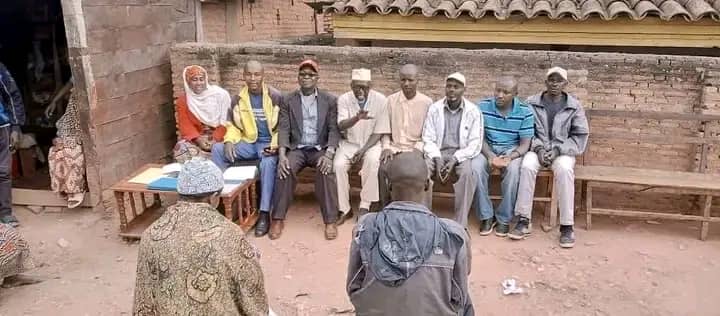Giharo : controversy surrounding decisions of hillside notables amidst political interference and violations of moral norms

SOS Médias Burundi
Giharo, July 7, 2025 – A wind of protest is blowing through the district of Giharo, in Rutana province – now Burunga (southeastern Burundi) – following a controversial decision by the hillside notables of Kibimba village. On Thursday, June 26, 2025, Boniface Nyandwi, known for his integrity and community involvement, was abruptly removed from this structure. He was replaced by Anderson Habonimana, a man living with two wives, a situation that is now fueling a heated debate among the local population.
According to several Kibimba residents, Boniface Nyandwi’s dismissal was orchestrated by Léonard Ruhoranyi, secretary of the CNDD-FDD in Kibimba village, with the complicity of the village chief, Zacharie Batungwanayo. They reportedly asserted that no one outside the ruling party should continue to sit among the village notables.
For the local population, this approach violates the very essence of these structures. « The village notables must unite, not divide, » a former notable reminds us. Their mission is to serve the community as a whole, regardless of political affiliation.
A worrying moral crisis
The replacement of Boniface Nyandwi by Anderson Habonimana, despite being polygamous, shocked many residents. National regulations prohibit local leaders, including village notables, from living in polygamous or cohabiting relationships, which are considered an offense against public morality. However, the current situation in Kibimba seems to run counter to these principles. The president of the village notables in this village is said to have successively married three women, dismissing the first two. The village chief himself is also said to be living with several wives. « It’s a real paradox. Those who should be role models for the community are today the first to violate the norms they are supposed to embody, » denounces a local teacher.
A justice system under political pressure?
The population of Giharo also denounces the instrumentalization of the justice system. According to several testimonies collected by SOS Médias Burundi, CNDD-FDD administrators and political leaders are allegedly exerting pressure on the Giharo local court to ratify contested decisions or to silence dissenting voices. The president of this court is himself said to be close to the ruling party.
« We no longer believe that justice can rule fairly. » « It’s in the hands of politicians, » laments a frustrated resident. This climate of mistrust reinforces the feeling of abandonment within the community.
An urgent need for reform
The situation in Kibimba illustrates a broader problem plaguing local governance in Burundi. Several observers and community leaders are calling for far-reaching reforms to guarantee the independence of hillside notables and ensure that they are appointed based on transparent, non-partisan criteria that respect moral standards.
The population’s confidence in these structures is now seriously shaken. Many hope that the national authorities will take measures to restore the credibility of hillside notables and preserve their key role in social cohesion.
The district of Giharo, like many other localities, awaits concrete action so that these mediation bodies can once again become pillars of justice, morality, and peace in the Burundian villages.
A reform that marks the end of the Bashingantahe?
On September 26, 2024, the new hillside notables were sworn in across the country. On that day, 43,650 men and women officially formed the new body responsible for local mediation, gradually replacing the Bashingantahe, traditional notables who have been present on every hillside in Burundi since the colonial era.
For decades, the Bashingantahe were considered pillars of social mediation, respected by different sectors of the Burundian society. Their possible elimination was interpreted by some as a politically motivated action, particularly by the CNDD-FDD, in power since 2005, which has never hidden its opposition to this institution.
Several voices were raised to denounce « a politically motivated action » that could « contribute to the degradation of several values in the Burundian society. »

